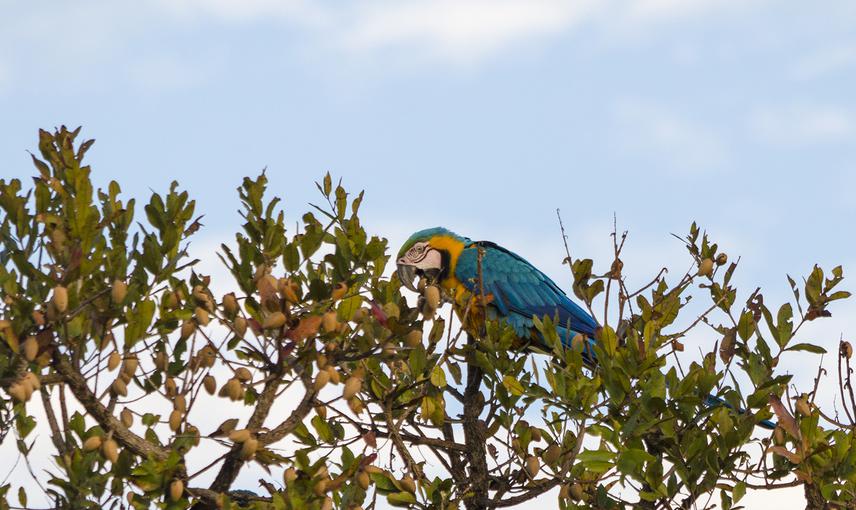Social media videos featuring the project.
Brotogeris chiriri consuming Pachira aquatica fruits.
Eupsittula aurea consuming Syzygium cumini fruits
Toco Toucan (Ramphastos toco) consuming fruits of Schefflera morototoni
26 Jul 2021 Campo Grande, Brazil, Central and Latin America Birds | Communities | Plants
The diversity of fruits and frugivorous animals is especially high in tropical regions, where frugivory and seed dispersal interactions are particularly critical for the structure and functioning of terrestrial communities.
The high biodiversity in the tropics is, however, threatened by urban expansion, which causes profound landscape changes and affects ecosystems functions such as seed dispersal. In this context, the importance of urban green areas (such as vegetation remnants and managed parks) for wildlife conservation and ecosystem processes has been increasingly recognized.

Our project will evaluate the factors contributing to the conservation of frugivorous birds and their food plants at Campo Grande, a tropical city in Brazil. This city is located within the Cerrado ecosystem, and previous records indicate that many threatened and endemic bird species are found in urban green spaces within the city.
Our main focus is to evaluate distinct facets of the diversity of frugivorous birds occurring across the urban landscape, in order to contribute to biodiversity friendly management of urban green areas, and the conservation of ecosystem services provided by birds.
We believe that sensitizing the population about biodiversity is also a powerful tool to move public policies for the conservation of wild species existing in urban areas. Thus, we also seek to disseminate the results of our project to the general public, through outreach activities with elementary school children and green areas administration officials of the city, and finally by establishing a social media presence associated with the project.
Social media videos featuring the project.
Brotogeris chiriri consuming Pachira aquatica fruits.
Eupsittula aurea consuming Syzygium cumini fruits
Toco Toucan (Ramphastos toco) consuming fruits of Schefflera morototoni